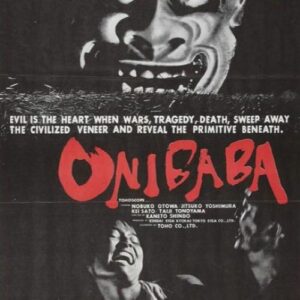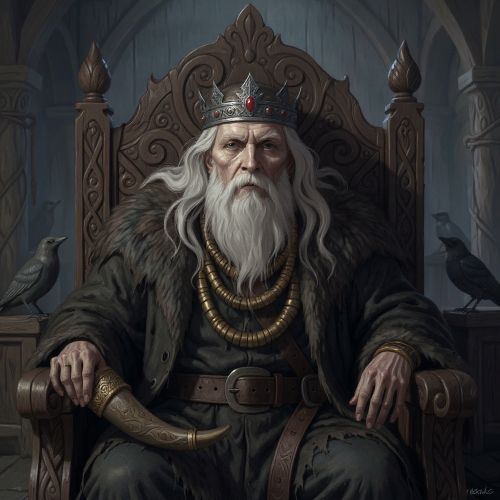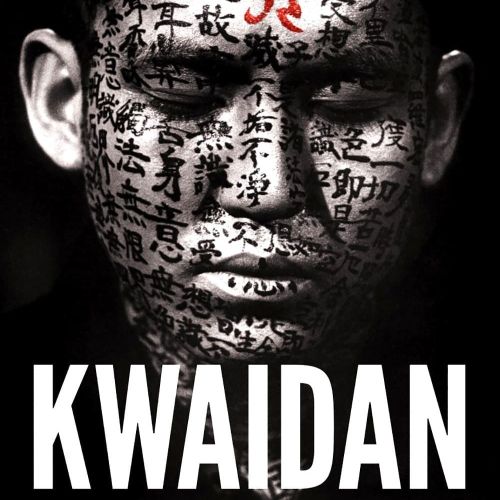Onibaba (1964)
| Description | |
|---|---|
| Country of Origin | Japan |
| Language | Japanese |
| Genre | Horror |
| Cast | Nobuko Otowa, Jitsuko Yoshimura, Kei Satō, Taiji Tonoyama |
| Directed by | Kaneto Shindō |

Onibaba, the 1964 Japanese film directed by Kaneto Shindō, is a masterclass in atmospheric horror that draws deeply from Japanese mythology and Buddhist folklore. Set during the war-torn period of 14th-century Japan, the film blurs the lines between history and myth, grounding its terrifying story in the harsh realities of famine and survival, while embedding it with symbolic and supernatural elements that elevate it far beyond conventional storytelling. The term Onibaba itself translates to “demon hag” or “devil woman,” and serves as the thematic backbone of the narrative, giving the film its eerie and timeless power.
The story revolves around two women—a mother and her daughter-in-law—who survive by ambushing and killing lost samurai in the tall grass plains of rural Japan, stripping their victims of armor and possessions to trade for food. This morally gray existence, already steeped in desperation and death, takes a darker turn when a mysterious mask enters the story. This Noh mask, representing a demonic face, becomes a vessel of transformation and ultimately damnation, mirroring Japanese legends of hannya—vengeful women who turn into demons due to intense jealousy or rage.
The mythological subtext of Onibaba lies in how it reflects Buddhist themes of karma, attachment, and illusion. The mask, taken from a dead samurai, becomes cursed, fusing itself to the face of the older woman in a grotesque punishment for her sins—deception, lustful envy, and violence. This chilling transformation echoes the Buddhist belief that one’s actions shape future suffering, especially when driven by selfish desire. The woman becomes a literal onibaba, a demon born from human emotion, reinforcing the idea that hell is not just a place but a condition of the soul.
Visually, Onibaba thrives on symbolic imagery. The swaying susuki grass fields become a metaphor for the shifting moral boundaries and blurred identities of the characters. The landscape itself is mythic, with the tall reeds forming a natural labyrinth where life, death, and the supernatural coexist. Nature in this film feels alive and complicit, mirroring ancient Japanese beliefs in kami—spirits that inhabit all things, including natural features. As night falls and shadows grow long, the physical world morphs into something uncanny and primal, suggesting the ever-present influence of unseen forces.
The film’s slow, rhythmic pacing and minimalistic setting amplify its folkloric feel, drawing viewers into a world where myth and reality intertwine. The mask, central to the film’s mythology, is not merely a horror prop—it embodies the fear of losing one’s humanity, of becoming the monster one pretends to be. In traditional Japanese lore, masks are often used in ritual and performance to channel spirits or embody specific archetypes. In Onibaba, the mask functions as a portal to this liminal space between woman and demon, morality and madness.
What makes Onibaba endure as a mythologically rich film is its refusal to offer easy answers. Is the mask truly cursed, or is it a symbol of psychological decay? Is the transformation supernatural, or is it the natural consequence of living outside the bounds of ethical society? These ambiguities are rooted in Japanese storytelling traditions, where myth is not a separate realm but an integral part of the everyday.
Onibaba is not just a horror film—it is a cautionary tale steeped in myth, a psychological study set against a backdrop of ancient beliefs. It reimagines traditional Japanese ghost stories for the cinematic age while maintaining their symbolic weight and spiritual resonance. Kaneto Shindō masterfully taps into centuries-old anxieties—about war, famine, lust, and retribution—making Onibaba a chilling yet profoundly human film that transcends genre and time.
For fans of Japanese mythology and horror alike, Onibaba remains a haunting and essential viewing experience. Its mythological elements are not superficial flourishes but the core of its emotional and philosophical depth. The legacy of Onibaba is that it continues to whisper from the reeds—telling us that monsters are made, not born, and that sometimes the demons we fear most are those we create ourselves.




